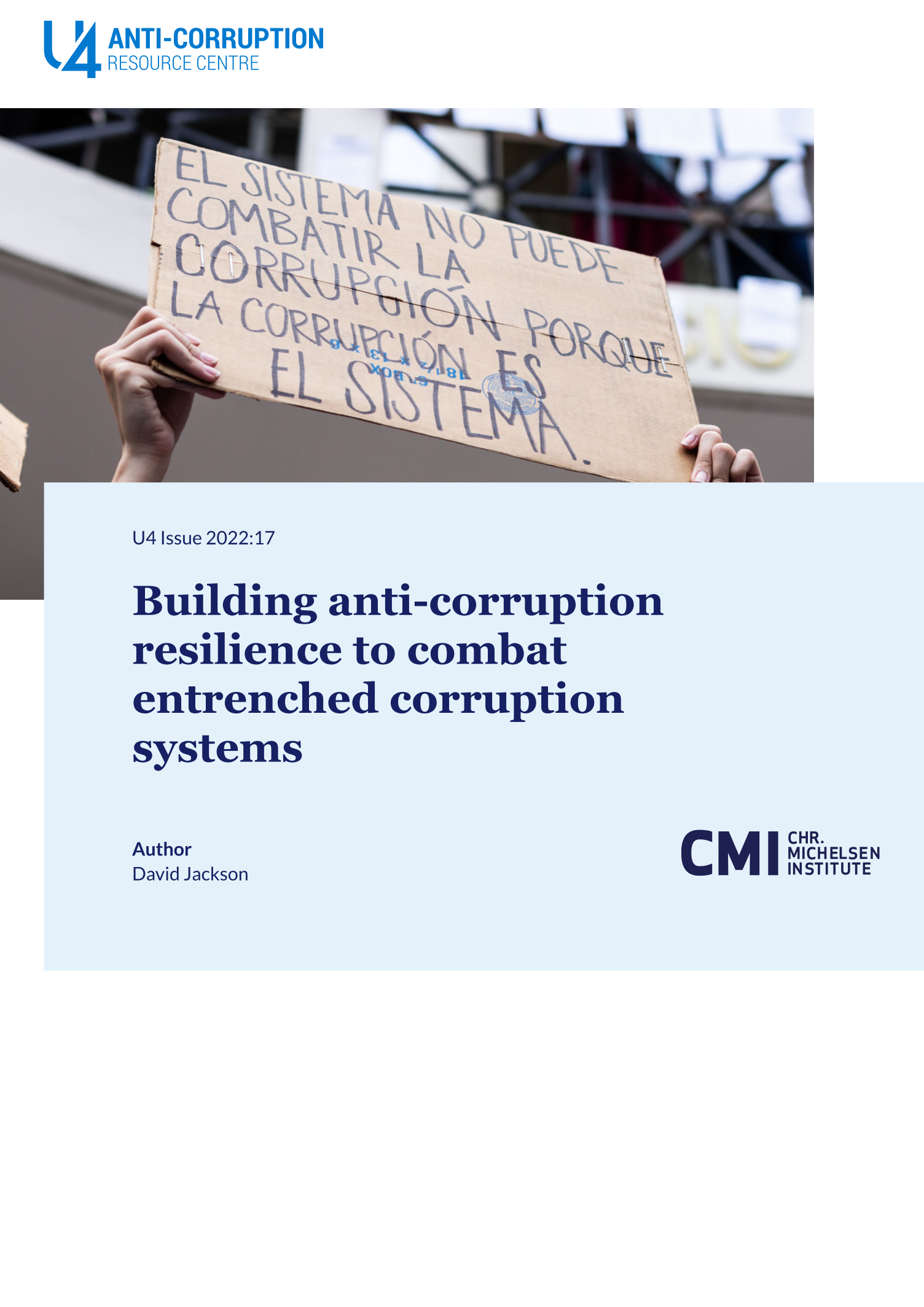Main points
- Much of the conventional anti-corruption approach has been shaped by the perspective that corruption is an ‘act’ – yet recent empirical work shows how many corrupt acts are nested within broader coordination structures.
- Understanding when corruption is part of a system, and when it is not, is important for anti-corruption policy design as each corruption problem needs a different approach and policy path.
- Corruption systems raise the stakes for anti-corruption because of the threat they pose to accountability mechanisms. This is because corruption systems tend to operate through a logic of co-option–impunity–exploitation which can pose relentless harm to the broader institutional framework.
- Networks within corruption systems will always seek to defend the system. Such ‘systemic resistance’ will often nullify conventional anti-corruption approaches. This typical vulnerability can only be addressed by building more resilience into anti-corruption efforts.
- Building resilience into anti-corruption is about: enhancing efficiency through targeted approaches; making more informed design choices based on context and sensitivity to how systems operate; and allowing actors in sectors to challenge the power differences that sustain corruption systems.



